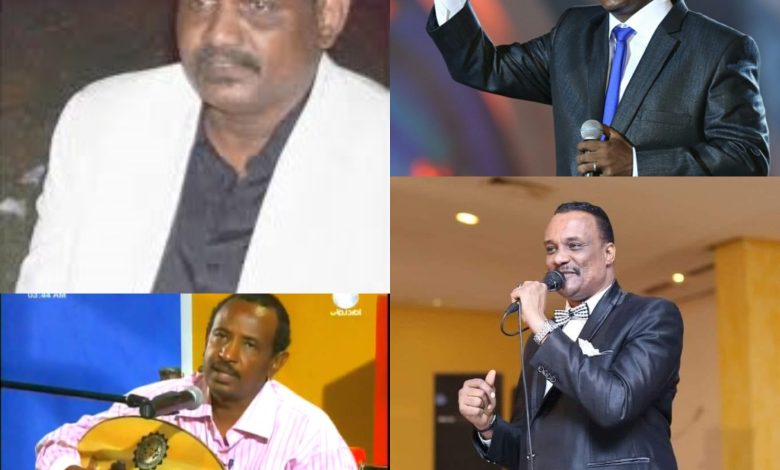Homecoming songs…nostalgia and mouthpiece

Artist Mustafa Al-Sunni: Singing “Return to the Homeland” dominated the singing scene
Composer Imad Youssef: These songs are the mouthpiece of the people
Critic Amir Ahmed Al-Sayed: After the war, realistic songs will prevail and enthusiastic songs will decline
Artist Mubarak Al-Banna: These nostalgia songs only expresse this stage
Sudan Events – Magda Hassan
New songs have appeared about the return of Sudanese to their homes and homeland, which have gained a wide share of circulation. They all share the title “The Return” and are related to the sentiment of nostalgia and longing for the homeland.
We will return
The artist Siddiq Omar sang (Beautiful is the Return to Khartoum), Sami Al-Maghrabi sang (Return to Sudan), and from the words of Al-Taher Aloub, Khaled Shabsha sang (Return to Khartoum), Abu Al-Qasim Wad Douba sang (We Will Return to Madani and Khartoum), and many songs where Heba Jabra sang the song (We will Return). and the song “We Swear to Return,” “We Are Returning, Khartoum,” “We Are Returning to Khartoum,” “We are Returning to Bahri,” and “Return to Omdurman” appeared.
Control the arena
The songs as a whole express a state of loss and longing, a new wave of singing as if it chronicles a new era of singing. However, the artist Mustafa Al-Sunni confirmed that it is a wave of singing, but it is not new and will not be the beginning of new singing. Al-Sunni said in an interview with (Al-Ahdath) that will be published later that the state of displacement within Sudan and asylum outside the homeland are what introduced the artist to the true meaning of estrangement, so they now have songs related to the homeland that they hear in a different environment with a different nostalgia: I do not think that it will be the beginning of new singing, but this period will be characterized by national singing, and the return and return will be dominant on the scene, and I am also in the first days. On Eid, I sang the song (Khartoum), written by the poet Mahmoud Al-Jiali and composed by Ahmed Al-Mubarak, because I believe that this is the time in which we are supposed to sing for the homeland until Khartoum returns safely and soundly.
Mouthpiece
Composer Imad Youssef is working on composing a number of patriotic songs in the same context, and he does not see any strangeness in the spread of these songs at this time, “I see that this is the natural role that the artist is supposed to play, to be the mouthpiece of his people and his country.” He said. He added that it is He noticed that all of these works talk about returning to the homeland and displacement, “In fact, for the first time in the history of Sudan, people left reluctantly and for months under oppression, so the rhythm was fast, clear, and sad. I wish safety for the homeland and health and well-being for all the displaced.” He added. “We have all been burned by the fire of this war. We hope that these words will heal the wounds.” He said.
Realistic singing
Journalist critic Amir Ahmed Al-Sayed expected that this type of singing would spread and that the post-war period would be a period of realistic singing. “I expect in the coming period that this type of singing or nostalgic singing will spread in general, and I believe the post-war period will be a new stage in shaping the conscience of the Sudanese person, and I expect that singing will become more realistic, with the decline of enthusiastic singing and many Sudanese heritage songs, as the realistic school will prevail in the next stage in all paths of the arts.” He said in his interview with (Al-Ahdath). “The people of Omdurman, by nature, have a very great longing and an great bias towards the place, as well as an emotional attachment to the place and its people. For example, the residents of Al-Mourada began to return quickly from Karari locality. I was touched by that crying scene among the neighbors. They were not crying over their homes that were looted, but rather the pain of separation and their longing for the place was the real event.” He added.
The artist Mubarak Al-Banna believes that this is singing of nostalgia and longing only expresses this stage and it is not a new type of singing.



